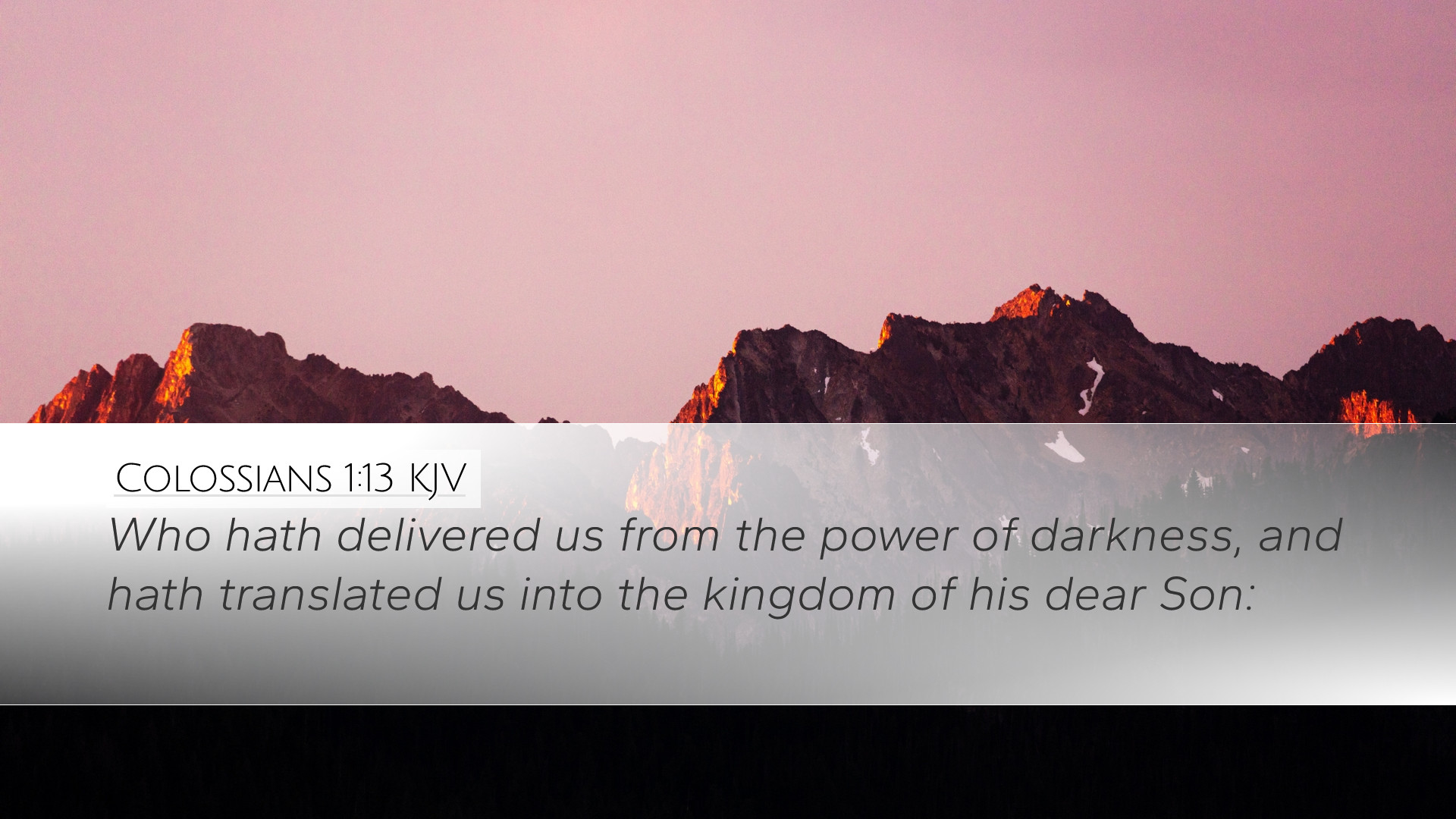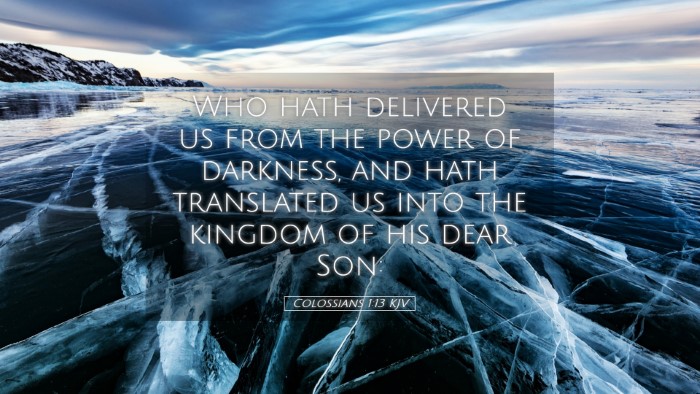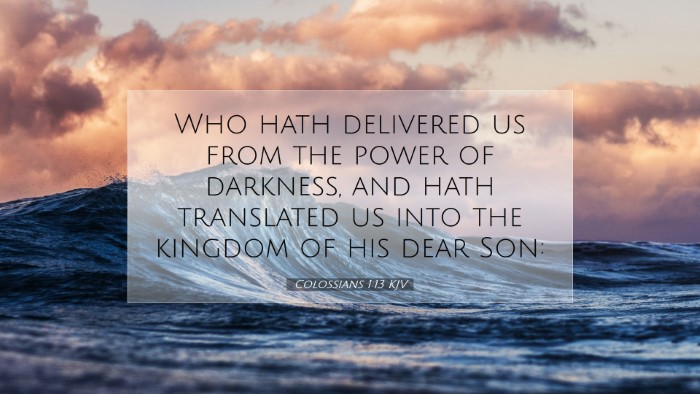Old Testament
Genesis Exodus Leviticus Numbers Deuteronomy Joshua Judges Ruth 1 Samuel 2 Samuel 1 Kings 2 Kings 1 Chronicles 2 Chronicles Ezra Nehemiah Esther Job Psalms Proverbs Ecclesiastes Song of Solomon Isaiah Jeremiah Lamentations Ezekiel Daniel Hosea Joel Amos Obadiah Jonah Micah Nahum Habakkuk Zephaniah Haggai Zechariah MalachiVerse
Colossians 1:1 Colossians 1:2 Colossians 1:3 Colossians 1:4 Colossians 1:5 Colossians 1:6 Colossians 1:7 Colossians 1:8 Colossians 1:9 Colossians 1:10 Colossians 1:11 Colossians 1:12 Colossians 1:13 Colossians 1:14 Colossians 1:15 Colossians 1:16 Colossians 1:17 Colossians 1:18 Colossians 1:19 Colossians 1:20 Colossians 1:21 Colossians 1:22 Colossians 1:23 Colossians 1:24 Colossians 1:25 Colossians 1:26 Colossians 1:27 Colossians 1:28 Colossians 1:29

